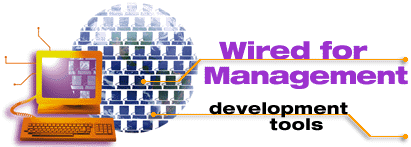|
|||||||||||||||||||||||||||||||||||||||||||||||||||||
|
|
|
|
|
|
|
|

Approx. 1.8 MB
Intel® DMI 2.0 SDK Development Tools Version 1.0
Verifying DMTF conformance of your component Management Information Format (MIF) files and exercising your component instrumentation are essential to creating Wired for Management products. Intel offers these programs to help you do this:Intel DMI 2.0 MIF Conformance Checker (COMPCHK2)
The Intel DMI 2.0 MIF Conformance Checker (COMPCHK2) is a development tool designed for Windows* 95 and Windows NT* (version 3.51 or later) operating systems, and is used to benchmark user-developed component implementations. This program is intended to make it easier and faster to verify that your components conform with standardized groups definitions and development requirements. COMPCHK2 does not itself define the requirements nor the standards for compliance.
Group definition confirmation
COMPCHK2 can be used to confirm that your group definitions:- Use valid MIF grammar.
- Comply with existing DMTF-approved Standard Groups Definition guidelines (available from the DMTF home page at http://www.dmtf.org/).
- Comply with your own standardized private group definitions.
- Build a list of Candidate component names or MIF files whose groups will serve as candidates for conformance testing.
- Build a list of Reference MIFs whose groups contain standardized group definitions (either the DMTF Standard Groups or your own private groups).
- Build a list of .REQ files that describe groups that must be represented in the Candidate MIFs list.
Included files
COMPCHK2 includes the MASTER.MIF file, which contains current definitions of all DMTF-approved Standard Groups definitions, and can be used to detect malformed Standard Groups definitions in the Candidate MIFs. The MASTER.MIF is updated as the standards change or new Standard Groups definitions are added. The latest DMTF-approved version of MASTER.MIF can be downloaded from the DMTF home page at http://www.dmtf.org/.COMPCHK2 also includes the REQ file, TEMPLATE.REQ, which is a tutorial document rather than a usable REQ file. TEMPLATE.REQ shows how REQ files are put together and how to describe requirements for MIF data definitions. For the latest DMTF-approved REQ files, see the DMTF home page.
DMI Component Test System (DCTS2)
The DMI Component Test System (DCTS2) is a development tool designed for Windows 95 and Windows NT (v3.51 or later) operating systems that allows the user to create, configure and run test suites that exercise any available DMI-enabled components and their instrumentation. DCTS helps establish a high level of confidence in component instrumentation by providing developers with the means for testing component functionality in typical runtime conditions. DCTS does this by allowing you to design custom test suites, which effectively exercise component instrumentation by performing controlled Gets and Sets on test components.DCTS' graphic user interface directs the user through the steps necessary to configure a test session and define its test list commands, browse components available for connected test systems, monitor events from the Service Provider, and monitor testrun data logging. The user can define reusable connection lists, which include the test systems available and the RPC characteristics used to connect to them. The user also defines which component MIFs installed on a specified test system are to be testable by DCTS; a separate component database internal to DCTS keeps track of the test components for each connected system.
Test Execution List (TEL)
As part of a test suite, developers can verify product functionality within a controlled runtime environment by generating and executing a Test Execution List (TEL), that makes one or more DMI command calls on a single component or multiple components. The exercise performed by a TEL can simulate actual runtime conditions by making repeated asynchronous calls of a command operating on a group or attribute, or by accessing several attributes, components and/or systems in rapid succession. A variety of testrun modifiers may be used to configure each execution of a TEL to further verify specific functionality.Test results
DCTS provides the capability to view, either online or as reports, test results from user-designed TELs. The exercising of a component's instrumentation, at either functional or stress levels, returns either errors or successful results. As determined by the developer, these results may indicate incorrect or correct component behavior, respectively.Reusability
Test Sessions and Test Execution Lists can be fully customized within the constraints of the DMI Specification 2.0 and individual component definitions. You can save and reuse these Sessions and TELs throughout the life of component instrumentation development.
License Agreement
By downloading the software, you agree to be bound by the terms of the license agreement. Therefore, it is recommended that you review the license agreement before downloading the software.
Release Notes
Review the release notes to learn more prior to downloading the software.
Support
If you have any questions or comments, please visit our support site.Approx. 1.8 MB
![]()
* Legal Information © 1998 Intel Corporation